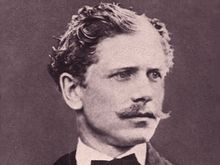
Ambrose Bierce
Ambrose Bierce left home at fifteen years old to work as a printer’s devil for the Northern Indianian newspaper in Warsaw, Indiana. His father, Lucius Verus Bierce, a former mayor of Akron with a background in the military, encouraged him to go to the Kentucky Military Institute. While there, he was influenced by Hearst’s cynicism and his growing distance from him.
Hearst’s cynicism
William Randolph Hearst was a media mogul who helped popularize the concept of yellow journalism in the late 1800s. This kind of journalism involved printing sensational stories that were intended to attract an audience. The practice became widespread when Hearst’s cynicism began to be questioned. Hearst’s cynicism was not confined to his own work, however. Hearst also endorsed Mussolini and Hitler.
Hearst’s influence on ambrose bierce
William Randolph Hearst hired Ambrose Bierce to write for the San Francisco Examiner, the first periodical under Hearst’s media goliath. The Examiner was a savage satire of the power structure, and Bierce renamed it “Prattle.” In the process, he won the right to express himself and became an icon of American satire.
Hearst’s relationship with ambrose bierce
During the late 1880s and early 1890s, Ambrose Bierce wrote a wide range of stories for Cosmopolitan, including satires in the “Ashes of the Beacon” style. After a romantic rejection, Bierce became involved in a love triangle, which ended when his rival shot himself. Bierce’s death was widely publicized and is now considered one of the most famous acts of American journalism.
Hearst’s friendship with ambrose bierce
William Randolph Hearst and Ambrose Bierce were a pair of anti-government agitators. Both men published op-eds and were known for their social critiques. Hearst’s friendship with Bierce lasted longer than the newspaper’s own life. Although Hearst never revealed Bierce’s real identity, it did lead to a conflict between the two men. In November 1901, a rival newspaper accused Bierce of foreshadowing McKinley’s assassination. In response, Hearst dispatched the agitator to Washington, D.C. to defend his friend. The agitators were outraged by the poem, but Hearst stuck by him.
Hearst’s support for ambrose bierce
William Randolph Hearst hired Ambrose Bierce as a writer in 1887. Bierce was twenty-three years old and had been working from job to job since the Civil War. Hearst supported the author because of his work, but his influence was limited by his personal views. Bierce later recalled his experiences at Hearst’s office. He was impressed by Bierce’s writing, but his wife didn’t share his views.


